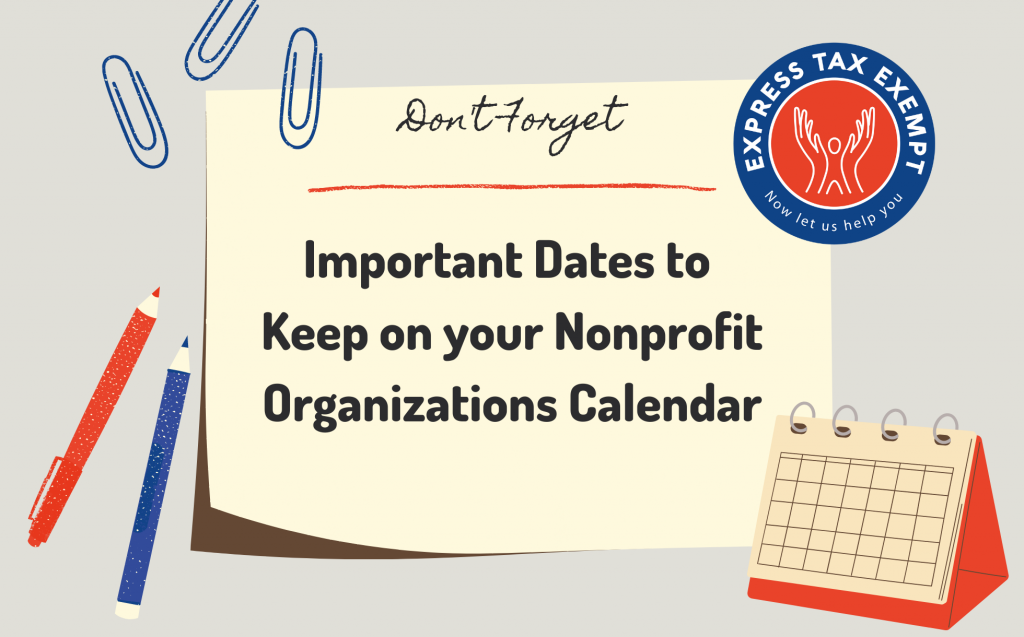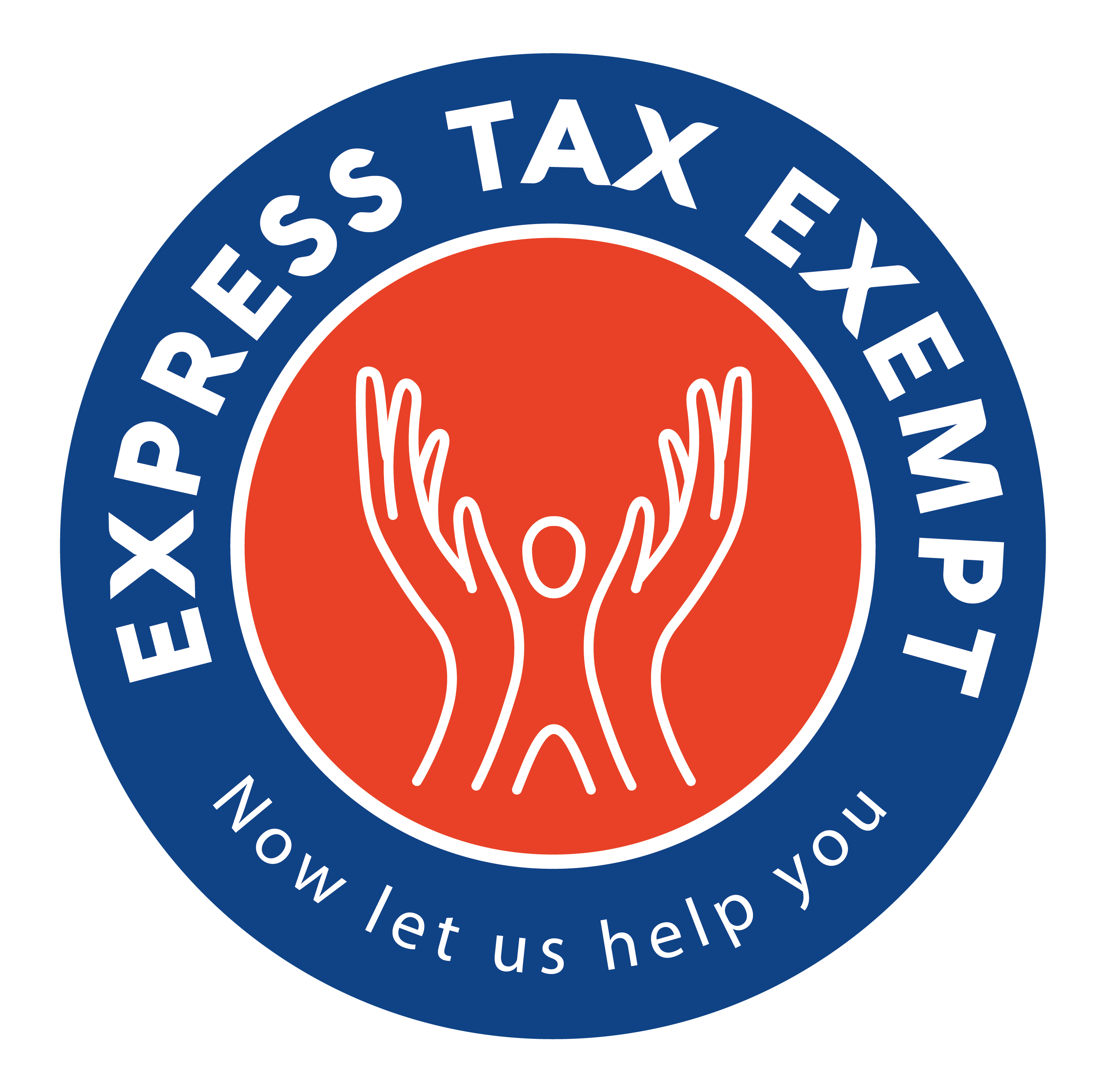Important Dates to Keep on your Nonprofit Organizations Calendar

When it comes to running a nonprofit organization, you probably don’t have much free time to spare. Thus, it’s crucial to keep an organized record of all of your meetings, events, and important dates. Creating a strategic plan for your nonprofit at the beginning of the year can help save you time and stress and also ensure all of your events run smoothly.
We’ve gathered up 8 important dates you need to add to your calendar at the beginning of every year:
1. Your organization’s fiscal year-end date
A fiscal year is a twelve-month period chosen by a company to report its financial information. A fiscal tax year does not need to start at the beginning of the calendar year. An organization’s fiscal year-end date is important because it will determine your nonprofit tax return due date.
If your organization operates on a calendar year, the end date will be Dec. 31.
2. Budget Creation
This may be the most important thing a nonprofit organization needs to do at the beginning of the year. Creating a budget for your nonprofit is an activity that you will want to allocate sufficient time for.
3. Board Meetings
Planning a meeting schedule at the beginning of the year can save your organization time and stress. You should also send out a meeting schedule to all of the anticipated attendees. This will ensure everyone is aware of meetings plenty of time in advance.
4. #GivingTuesday
Giving Tuesday, often described as a global day of giving or a global generosity movement, is held each year on the Tuesday following Thanksgiving. Giving Tuesday is a perfect chance for nonprofits to highlight their missions, solicit donations, and gain new supporters. Participation in giving Tuesday is not mandatory for nonprofit organizations but it can be highly beneficial. Planning out Giving Tuesday events early and marking them on your calendar can help set your organization up for success.
5. Fundraising Events
Planning major fundraising events ahead of time is crucial for nonprofit organizations. When an organization has an upcoming fundraising event, it should begin promoting it weeks or even months in advance. Having the dates for your fundraising events mapped out at the beginning of the year can help you avoid stress and plan accordingly for each event.
6. Newsletters
Newsletters are an excellent way for nonprofit organizations to reinforce their fundraising efforts, engage with donors, and announce upcoming events or news. Having a set schedule for when you want to send newsletters (quarterly, bi-monthly, or monthly) can help with the planning process.
7. Nonprofit Due Date
The large majority of nonprofit organizations in the United States are recognized as tax-exempt. Although these organizations are tax-exempt, they are still required to file annual information returns with the IRS. The sort of information tax return that tax-exempt nonprofits must file depends on the size of the organization.
- Organizations with gross annual receipts of less than $50,000 are only required to file an e-Postcard (Form 990-N).
- Organizations with gross annual receipts of greater than $50,000 but less than $200,000 — and with total assets of less than $500,000 — are required to file Form 990-EZ.
- Organizations with gross annual receipts greater than $200,000 or total assets over $500,000 must file Form 990, which requires a considerable amount of financial information.
- Private foundations must file Form 990-PF regardless of size.
Form 990 is due on the 15th day of the 5th month following the end of the organization’s taxable year. For organizations on a calendar year, Form 990 is due on May 15th of the following year.
8. Year-End Donor Tax Receipt
Put aside time in early January to prepare and send calendar-year tax receipts to donors. This nonprofit due date is required, as your donors may need the information for tax time.
A donation receipt is a written acknowledgment from a nonprofit organization for any monetary or non-monetary contributions made by a donor. Any donations worth $250 or more must be recognized with a receipt. This donation receipt will act as official proof of the contribution, and help donors claim a tax deduction. Nonprofits usually issue donation receipts when the donation is made, along with a year-end receipt for tax deduction purposes.
ExpressTaxExempt
ExpressTaxExempt is here to help keep your organization tax-compliant! As an IRS-authorized e-filing provider, ExpressTaxExempt helps nonprofits file their annual information returns simply and securely. ExpressTaxExempt support e-filing for Form 990, 990-N, 990-EZ, 990-PF, 990-T, 8868, 1120-POL, and CA-199.
Set your organization up for success and create your free ExpressTaxExempt account now!



